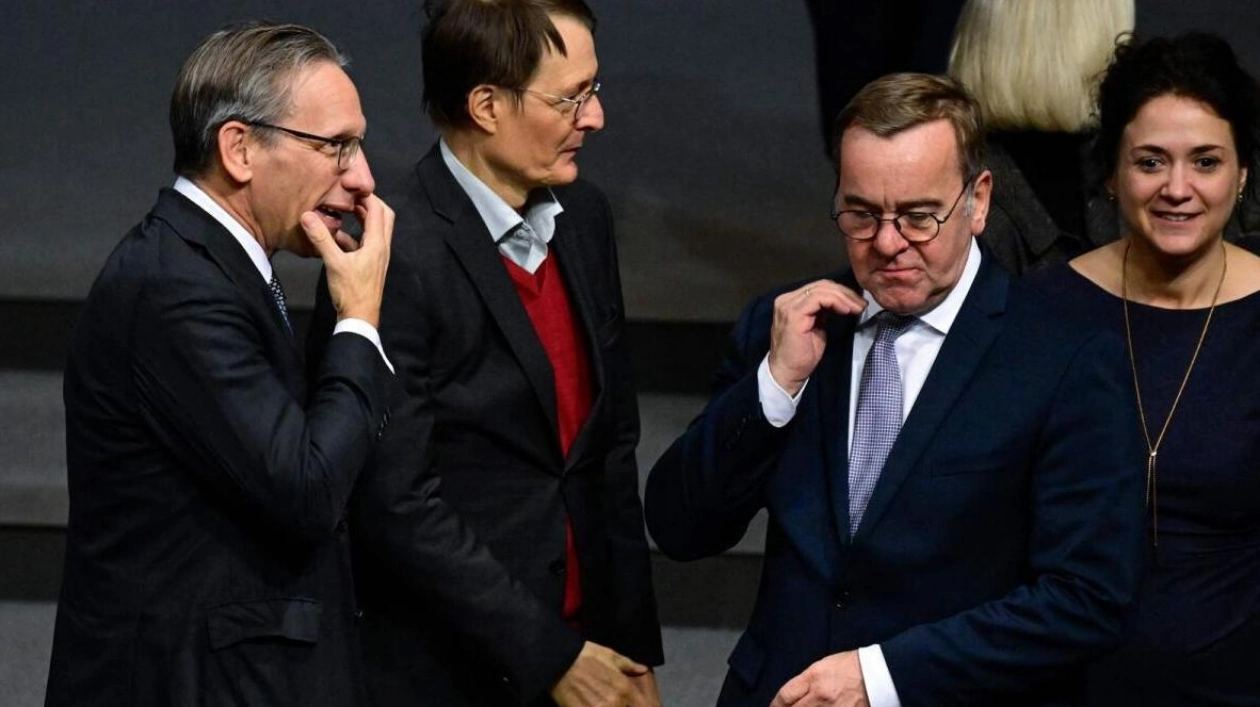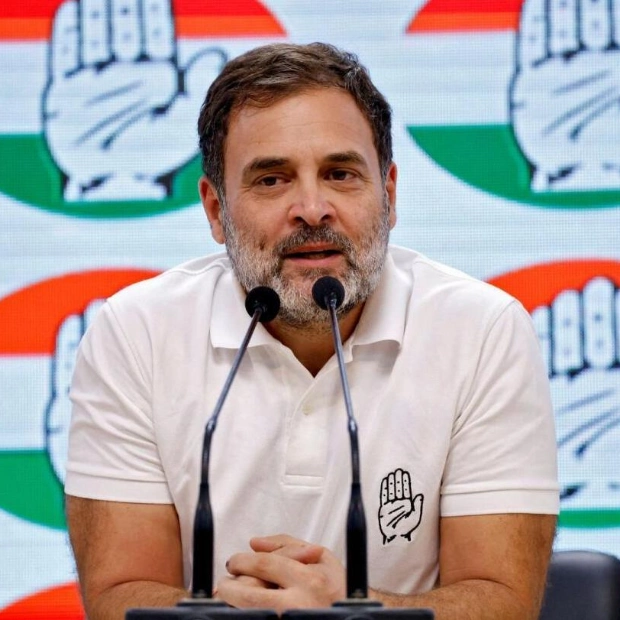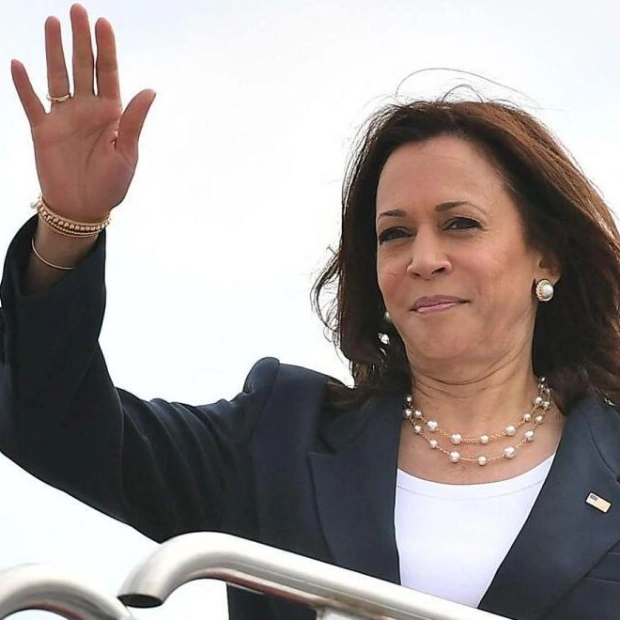Newly appointed German Finance Minister Joerg Kukies (L) converses with Health Minister Karl Lauterbach (C) and Defence Minister Boris Pistorius following his swearing-in ceremony at the Bundestag, Germany's lower house of parliament, in Berlin on November 7, 2024. — AFP
Joerg Kukies, the fresh face in Germany's finance ministry, is a seasoned investment banker who has long been among Chancellor Olaf Scholz's most trusted confidants, most recently serving as a state secretary. Scholz first introduced Kukies to the political arena in Berlin in 2018, when Scholz was the finance minister under Angela Merkel — a decision that sparked considerable unease within the centre-left Social Democratic Party (SPD). At that time, Kukies was co-heading investment giant Goldman Sachs in Germany. The Handelsblatt business daily characterized his abrupt shift from banking to politics as 'a genuine bombshell'. Despite the substantial pay reduction, he remained committed — and three years later, when Scholz ascended to the chancellery, Kukies transitioned to an economic advisor role within the chancellery.
The 56-year-old has been an SPD member since the age of 18 and briefly led the party's youth wing in Rhineland-Palatinate state in the early 1990s. He relinquished that role when he relocated to Paris to pursue economics studies, later earning a master's degree from Harvard University and a doctorate from the University of Chicago. In 2001, Kukies joined Goldman Sachs in London, before shifting to Frankfurt to serve as an equities expert for the bank. By 2014, he had risen to the position of joint CEO of Goldman Sachs AG and managing director of the Frankfurt branch, overseeing the bank's operations in Germany and Austria. Kukies primarily focused on securities trading and 'derivative financial product solutions', as he disclosed to Wirtschaftswoche magazine.
During the Covid-19 pandemic, Kukies led the Economic Stabilisation Fund, which provided federal guarantees on loans and recapitalisation measures to support businesses through the crisis. He also served as the chief negotiator during the temporary nationalisation of German airline Lufthansa. However, his standing took a hit during the Wirecard scandal, Germany's most infamous case of accounting fraud. Following Wirecard's insolvency in 2020, it was revealed that the company's disgraced CEO Markus Braun had met with Kukies at the finance ministry in November 2019 — prompting calls for his resignation. The broader scandal led to a comprehensive reform of Germany's finance watchdog BaFin, which had been heavily criticized for overlooking early warnings about Wirecard.
In addition to his advisory role, Kukies has represented Scholz at G20 and G7 summits. His elevation to a ministerial position follows Scholz's dismissal of former finance minister Christian Lindner, which led to the collapse of the three-way coalition. With Lindner's FDP party now out of government, Scholz aims to maintain power until next year as the leader of a minority coalition comprising his SPD and the Greens. As finance minister, Kukies will likely face constraints due to the government's lack of a majority, according to analysts. A minority administration is unlikely to pass the 2025 budget, which was the subject of prolonged and contentious negotiations before the coalition's collapse. Nonetheless, regular spending will continue, and less contentious measures and urgent spending decisions, such as bolstering support for Ukraine, could potentially gain approval with opposition party backing.
German far-left opposition politician Sahra Wagenknecht was quick to criticize Kukies's appointment on Thursday. The fact that the Social Democrats, of all parties, had entrusted a former Goldman Sachs banker with the task of drafting the federal budget spoke volumes about the state of the SPD, she remarked.
Source link: https://www.khaleejtimes.com






